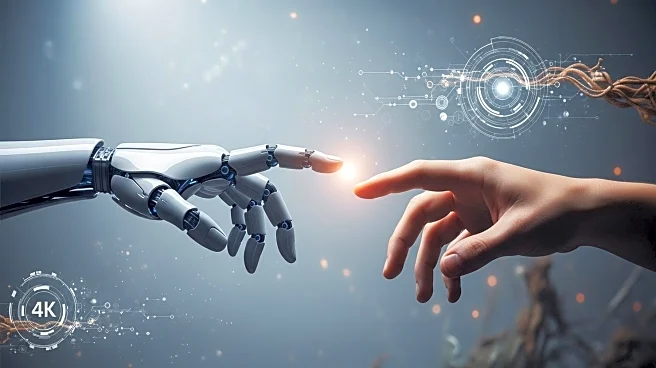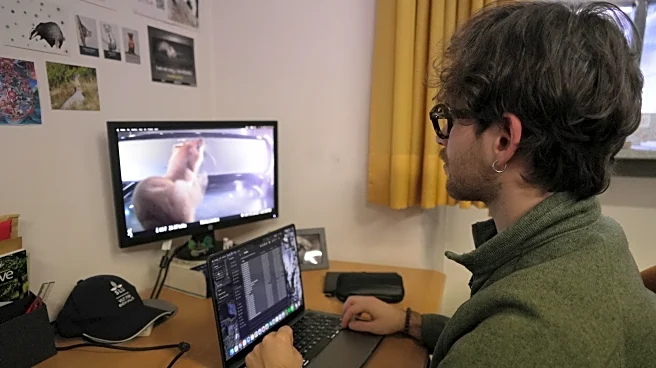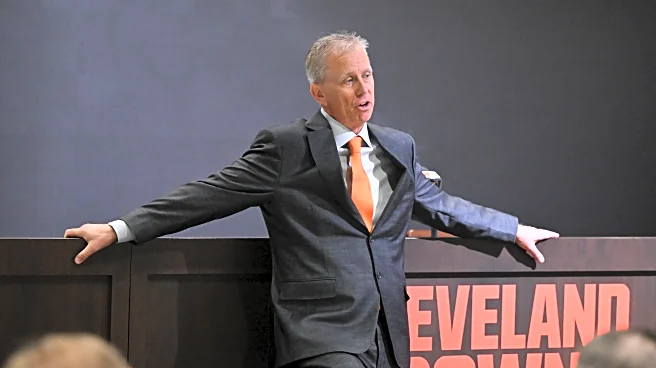What's Happening?
Ohio state Rep. Thaddeus Claggett has introduced legislation to prohibit marriages between humans and AI chatbots. The bill aims to declare AI systems as 'nonsentient entities' and prevent them from obtaining
legal personhood, including marriage rights. Claggett expressed concerns that marriage could grant AI systems undue legal powers, such as power of attorney or medical decision-making authority. The legislation also seeks to restrict AI systems from owning property, holding financial accounts, or occupying management positions in companies. The bill reflects growing apprehension about the rapid advancement of AI technology and its potential societal implications.
Why It's Important?
The proposed legislation addresses ethical and legal challenges posed by AI technology, particularly in defining the boundaries of human-AI interactions. As AI systems become more sophisticated, concerns about their integration into human society and the potential for legal personhood have intensified. The bill aims to establish clear guidelines to ensure human oversight and prevent AI systems from acquiring rights that could disrupt societal norms. This move may influence other states to consider similar legislation, shaping the national discourse on AI regulation.
What's Next?
The bill will undergo review by Ohio's technology committee, where lawmakers will debate its implications and potential impact. If passed, it could set a precedent for other states to follow, prompting a broader examination of AI's role in society. Stakeholders, including tech companies and civil rights groups, may weigh in on the legislation, influencing its development and implementation. The outcome could affect the future of AI regulation and the balance between innovation and ethical considerations.
Beyond the Headlines
The legislation highlights cultural shifts in human-AI relationships, with a significant portion of U.S. adults reportedly engaging in romantic interactions with chatbots. It raises questions about the nature of companionship and the evolving definition of relationships in the digital age. The bill may also spark discussions on the ethical responsibilities of AI creators and the societal impact of AI integration.











